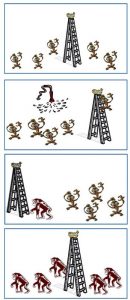
By Marc Jacobs and Jean-Pierre Coene, Associate Partners of ITIM International and ‘The Hofstede Centre’
Published by: Luxembourg School of Business, March 2016
Maybe you are a successful and accomplished deal maker in your own country but you struggle to be as successful internationally. You’ve done all the courses, you understand how to develop business and how to close deals, but somehow, it doesn’t work very well once you’re dealing with countries other than you own. Your approach and style that made you very successful in your own country don’t seem to work that well anymore.
Very likely, the reason is to be found in cultural differences between your home country and the countries you are dealing with. In a world where business is becoming ever more global, the development of intercultural competence has become a strategic topic.
The following quote from a report published by The Economist Intelligence Unit in 2012 illustrates the very point.
“Misunderstandings rooted in cultural differences present the greatest obstacle to productive cross-border collaboration.”
Our article in the Luxembourg School of Business Review introduces you to a system we have developped that will help you to be far more effective and successful in international B2B negotiations.
We build on the academic work of Prof Emeritus Geert Hofstede, who is well known as the father of comparative research into culture and considered one of the top 20 most influential business thinkers by the Wall Street Journal in 2008.
Please click HERE to download the full article.



 By Marc Jacobs, Associate Partner of Itim International and ‘The Hofstede Centre’
By Marc Jacobs, Associate Partner of Itim International and ‘The Hofstede Centre’